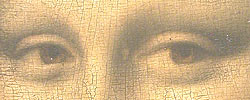 Spring is arriving in the South. The daffodils and bright tulips are blooming everywhere. The plum, pear and apple trees are clouds of pink and white. Along the roadsides, the fragrant purple wisteria vines hang in beautiful grape-like bunches. The yellow bell-shaped flowers of forsythia shrubs are electric mounds of color.
Spring is arriving in the South. The daffodils and bright tulips are blooming everywhere. The plum, pear and apple trees are clouds of pink and white. Along the roadsides, the fragrant purple wisteria vines hang in beautiful grape-like bunches. The yellow bell-shaped flowers of forsythia shrubs are electric mounds of color.If you grow up in a place that doesn’t have the four seasons, you really miss out. I would prefer that there were only three seasons, Spring, Summer, and Fall. Winter is my least favorite, although a crackling fireplace and a cup of hot cocoa can change my mind about that.
Winters in the South are not nice. We usually have a lot of rain (instead of snow) so everything is cold and soggy. The other day it was pouring rain and the temperature never got above 35 degrees. Just a few degrees lower and we could’ve had a real snow day.
The reward, however, is the beautiful flowers and blooming trees that announce that….ahhhhhh spring is here (which brings up a topic to be discussed in another post – tornado season)!


















